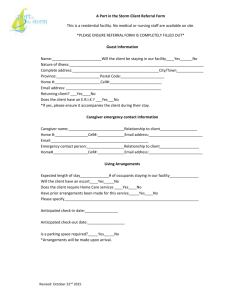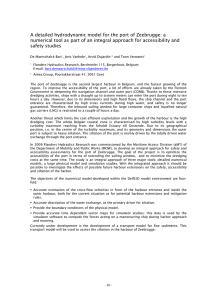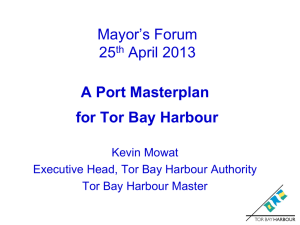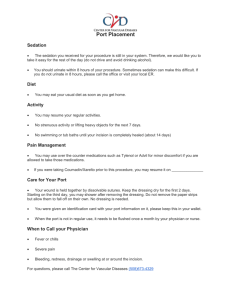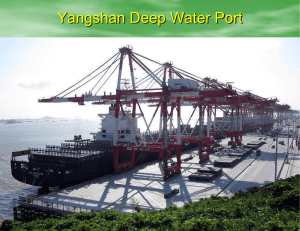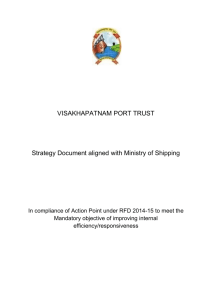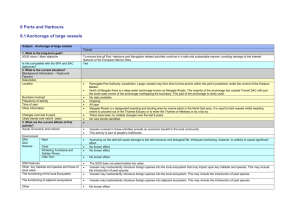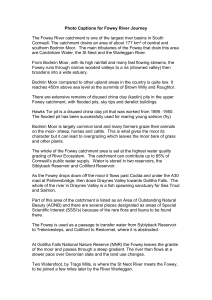port in a storm
advertisement
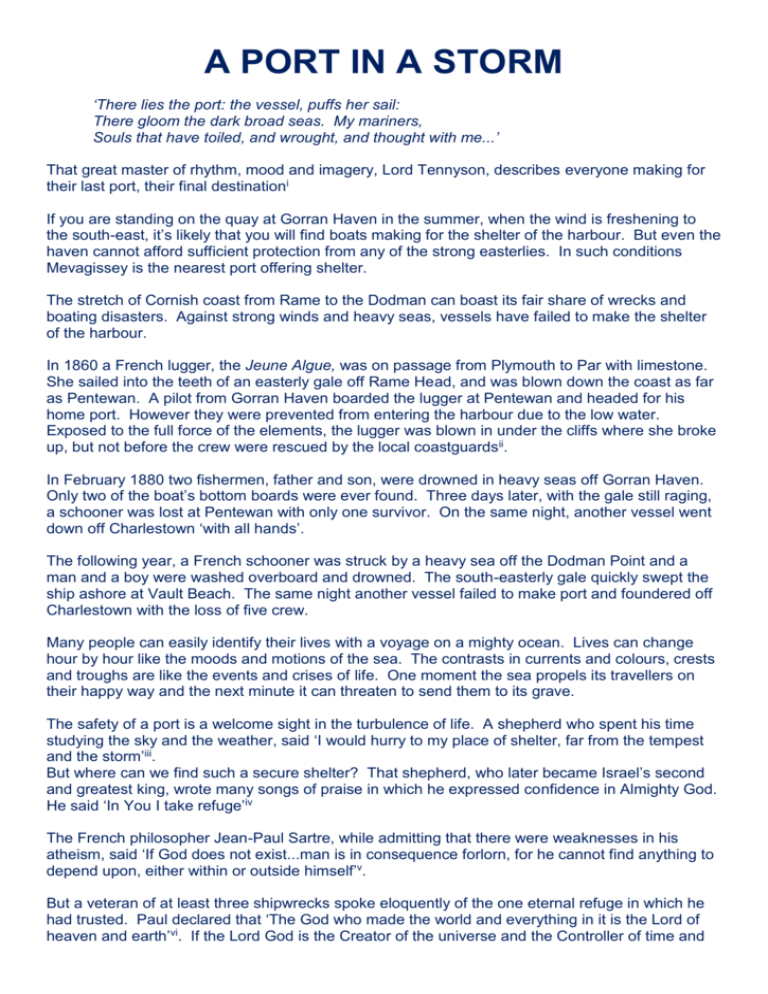
A PORT IN A STORM ‘There lies the port: the vessel, puffs her sail: There gloom the dark broad seas. My mariners, Souls that have toiled, and wrought, and thought with me...’ That great master of rhythm, mood and imagery, Lord Tennyson, describes everyone making for their last port, their final destinationi If you are standing on the quay at Gorran Haven in the summer, when the wind is freshening to the south-east, it’s likely that you will find boats making for the shelter of the harbour. But even the haven cannot afford sufficient protection from any of the strong easterlies. In such conditions Mevagissey is the nearest port offering shelter. The stretch of Cornish coast from Rame to the Dodman can boast its fair share of wrecks and boating disasters. Against strong winds and heavy seas, vessels have failed to make the shelter of the harbour. In 1860 a French lugger, the Jeune Algue, was on passage from Plymouth to Par with limestone. She sailed into the teeth of an easterly gale off Rame Head, and was blown down the coast as far as Pentewan. A pilot from Gorran Haven boarded the lugger at Pentewan and headed for his home port. However they were prevented from entering the harbour due to the low water. Exposed to the full force of the elements, the lugger was blown in under the cliffs where she broke up, but not before the crew were rescued by the local coastguardsii. In February 1880 two fishermen, father and son, were drowned in heavy seas off Gorran Haven. Only two of the boat’s bottom boards were ever found. Three days later, with the gale still raging, a schooner was lost at Pentewan with only one survivor. On the same night, another vessel went down off Charlestown ‘with all hands’. The following year, a French schooner was struck by a heavy sea off the Dodman Point and a man and a boy were washed overboard and drowned. The south-easterly gale quickly swept the ship ashore at Vault Beach. The same night another vessel failed to make port and foundered off Charlestown with the loss of five crew. Many people can easily identify their lives with a voyage on a mighty ocean. Lives can change hour by hour like the moods and motions of the sea. The contrasts in currents and colours, crests and troughs are like the events and crises of life. One moment the sea propels its travellers on their happy way and the next minute it can threaten to send them to its grave. The safety of a port is a welcome sight in the turbulence of life. A shepherd who spent his time studying the sky and the weather, said ‘I would hurry to my place of shelter, far from the tempest and the storm’iii. But where can we find such a secure shelter? That shepherd, who later became Israel’s second and greatest king, wrote many songs of praise in which he expressed confidence in Almighty God. He said ‘In You I take refuge’iv The French philosopher Jean-Paul Sartre, while admitting that there were weaknesses in his atheism, said ‘If God does not exist...man is in consequence forlorn, for he cannot find anything to depend upon, either within or outside himself’v. But a veteran of at least three shipwrecks spoke eloquently of the one eternal refuge in which he had trusted. Paul declared that ‘The God who made the world and everything in it is the Lord of heaven and earth’vi. If the Lord God is the Creator of the universe and the Controller of time and space, then doesn’t he have a safe pair of hands? But there’s a problem! There’s always a problem! In natural terms, you don’t have a friendly and wholesome relationship with God because something has damaged the lines of communication. The Bible tells it plainly: ‘But your iniquities have separated you from your God; your sins have hidden his face from you’ vii. How then can a relationship between the Creator and his creation be re-established? It had to be a divine initiative since humanity is basically incapable of dealing with the huge problem of human sin. To meet the rigorous requirements of his holiness, and to mediate with estranged humanity, God visited the world in the person of his Son, Jesus Christviii. He alone was supremely qualified as God and man to make reconciliation possibleix. His planned death on a Roman cross was the chosen method of taking the punishment and guilt of sin himself. The Galilean fisherman turned preacher wrote ‘He himself bore our sins in his body on the tree, so that we might die to sins and live for righteousness’x There is security and forgiveness in the Lord Jesus Christ for all who willingly turn from their sin and turn to him by faith. International headlines merely confirm the hopeless evil and depravity that exists all around us. But there is good news that isn’t generated from a journalist’s laptop. Instead, it comes from the Bible: ‘God so loved the world that he gave his one and only Son, that whoever believes in him shall not perish but have eternal life’xi The ‘port of safety’ is in Jesus Christ for those who repent and believe. In Jesus there is perfect love, unconditional pardon, genuine joy and a guaranteed future. We may better ourselves and improve our conditions, but we cannot deal with the one thing that separates us from God. You may claim ‘I am the master of my fate: I am the captain of my soul’xii and you may not want to know anything about God and his rescue plan. But the testimonies of millions of people over 20 centuries confirm the truth of what God has said in the Bible: ‘If you confess with your mouth the Lord Jesus and believe in your heart that God has raised him from the dead, you will be saved’xiii The catalogue of maritime tragedies continued into the twentieth century with many sailors losing their lives within sight of harbour and safety. The hazy morning of July 31 st 1966 saw 29 passengers and 2 crew board a 45 foot pleasure craft at Mylor Creek for a cruise along the Cornish coast to Fowey. Although the forecast spoke of a moderate to fresh easterly, the Darlwyne had plied that route several times before. After spending about three hours at Fowey, she set sail on her return voyage during the mid-afternoon. But the wind had strengthened and the wave height was as much as twelve feet. She was seen making heavy weather as she passed Gorran Haven during the evening, but she never reached the safety of Falmouth harbour. By late evening it was realised that the pleasure boat was overdue. Coastguards searched local harbours to see if she was not sheltering somewhere until the weather improved. At first light the Fowey and Falmouth lifeboats were launched, together with an air search, but the vessel was never found. The Court of Inquiry concluded that the Darlwyne had foundered or capsized off the Dodman at about 9pm with the loss of 31 lives xiv. The 18th century proverb says ‘Any port in a storm’. Some ports like Gorran Haven, however, do not afford sufficient shelter from every kind of storm. The photos of Gorran Haven harbour, in the easterly storm of October 2003, proves the lack of protection for all kinds of vessels. We can’t rely on ‘any port in a storm’ just as we can’t rely on ‘any religion in a crisis’. We don’t need a religion: we need a Saviour – one who is ‘able to save to the utmost those who come to God through him’xv. If you trust in Jesus Christ – humbly, sincerely, earnestly – he will not only be your eternal ‘port in a storm’ but also he will be your constant friend and guide through all the stormy passages of this life. i Ulysses [1842] l.44-47 ‘Cornish Shipwreck: the South Coast’ R. Larn and C. Carter pp32-34 iii David in Psalm 55.8 iv David in Psalm 16.1 v ‘The Rebel’ JP Sartre p75 vi Paul the apostle in Acts 17.24 vii Isaiah 59.2 viii Galatians 4.4 ix 1 Timothy 2.5-6 x 1 Peter 2.24 xi John 3.16 xii ‘Invictus’ [1888] W.E. Henley xiii Romans 10.9 xiv ‘The Cruel Sea’ D. Mudd pp103-7 xv Hebrews 7.25 ii
